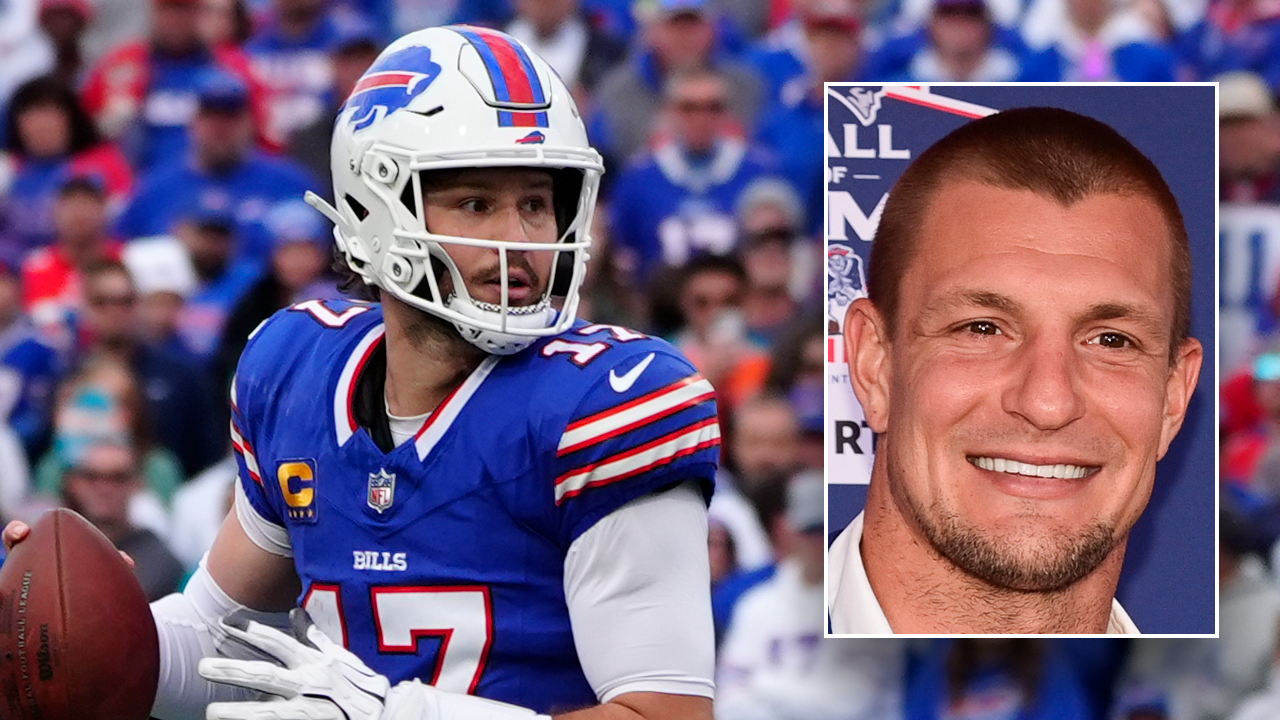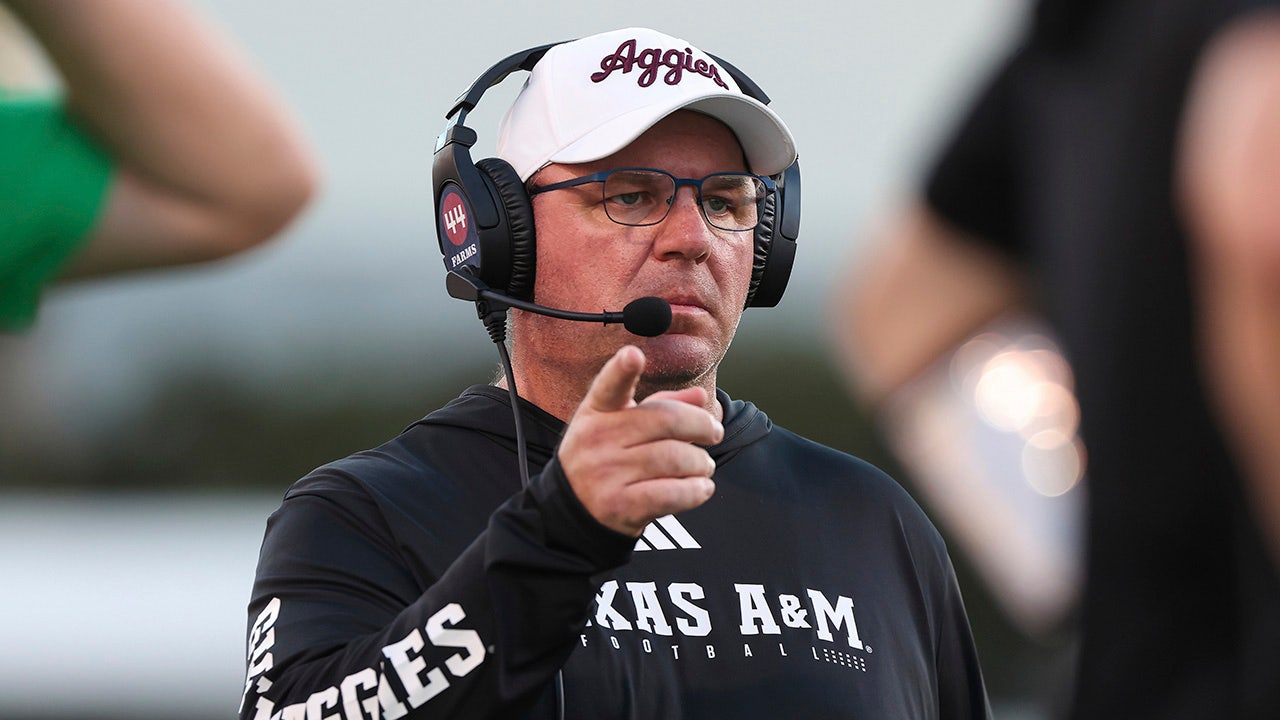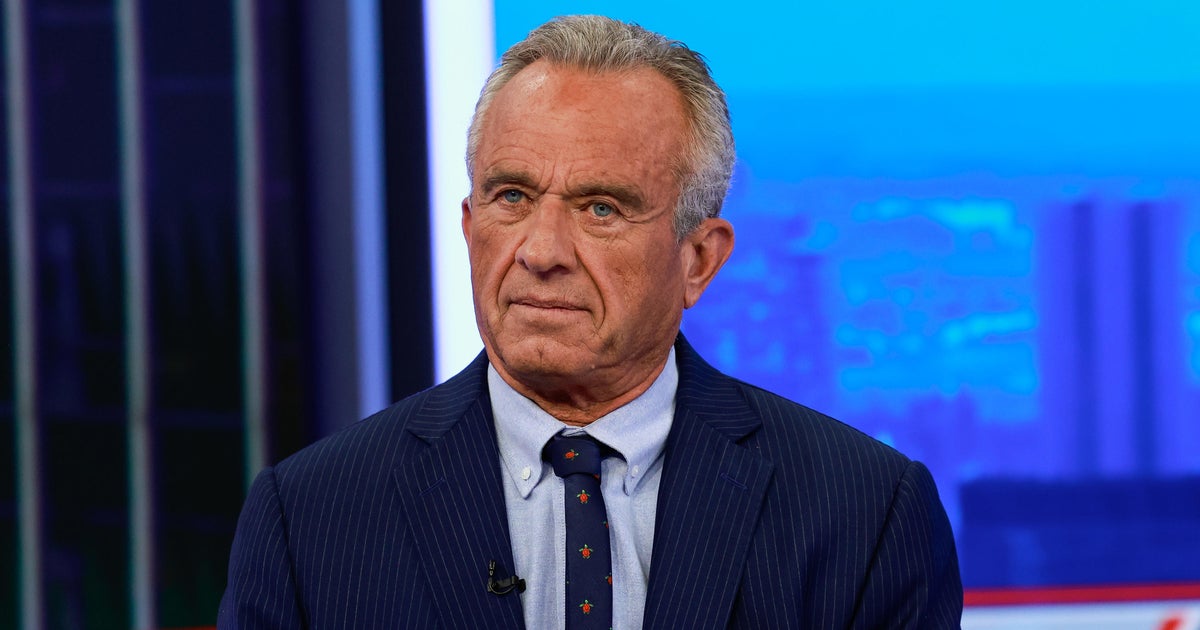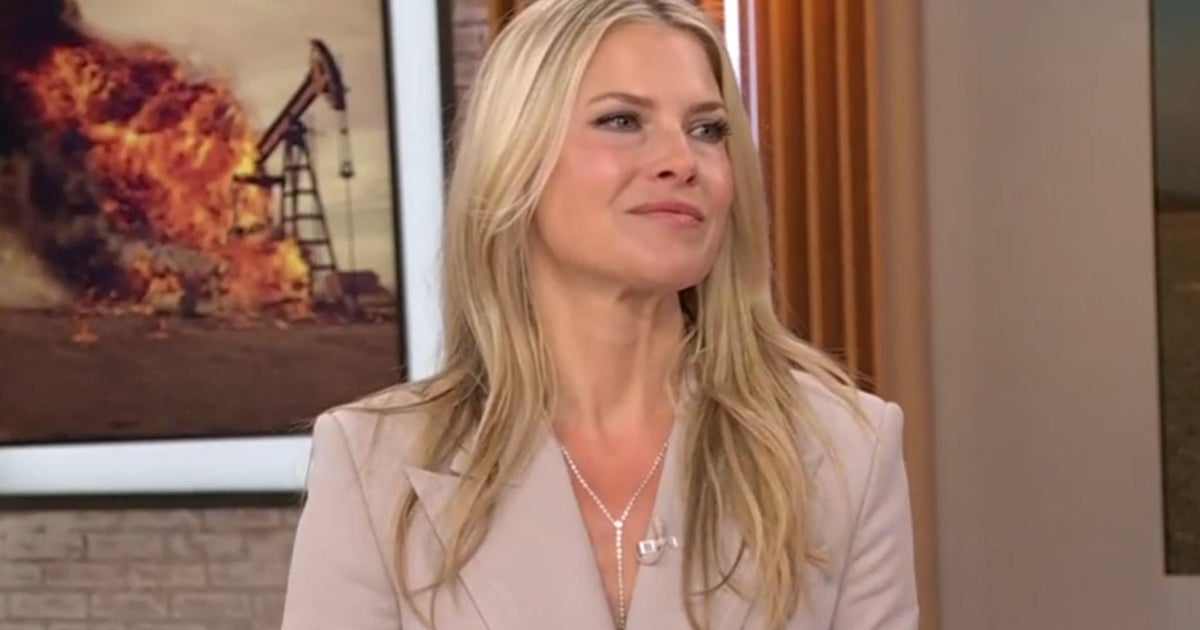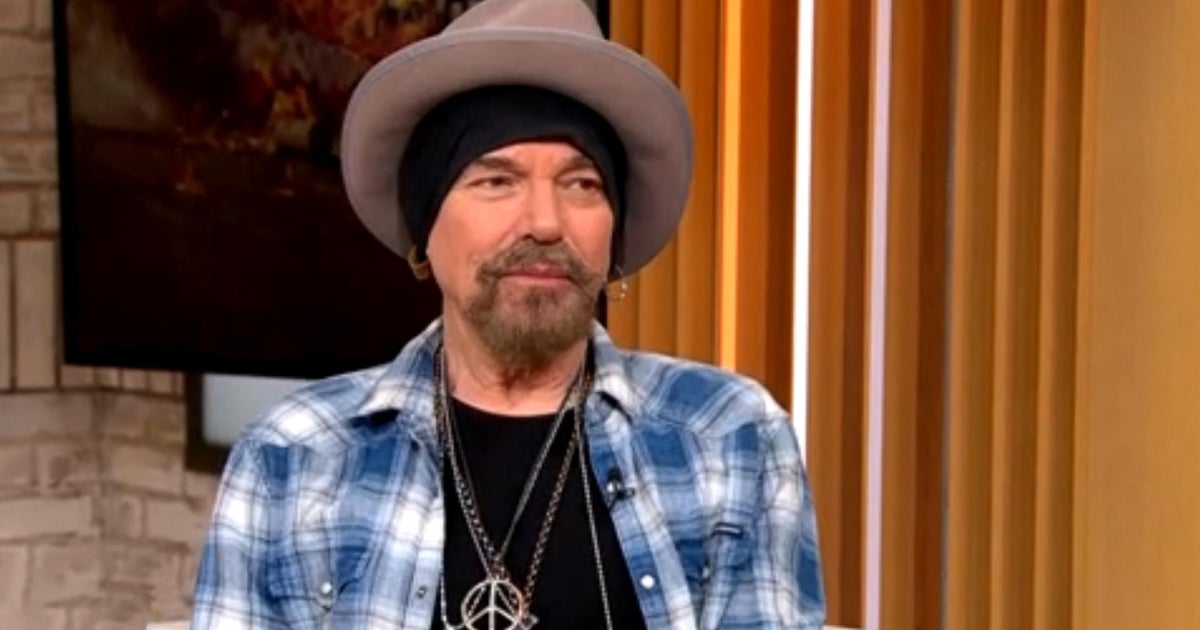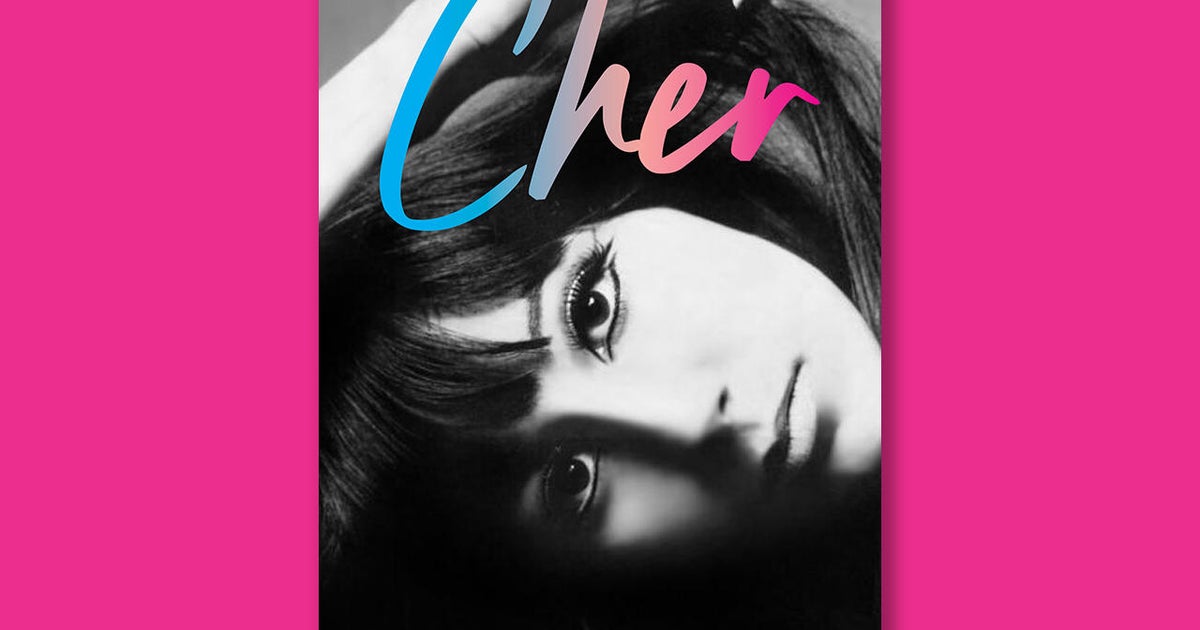“It’s just not really scary on set,” says the 31-year-old actress.
That’s not what she says about “Longlegs.”
The superlatively spooky serial-killer flick filmed in the winter of 2023 in Vancouver, pairing Monroe with Nicolas Cage as a villain so shocking he’s not even in the trailer. Writer and director Osgood “Oz” Perkins didn’t let them meet until they shot a climactic scene in an interrogation room, in which Monroe’s FBI-agent savant faces down her fully transfigured co-star for the first time. Perkins wanted to capture an “absolutely spontaneous, uncontrollable moment.”
Cage brought it. Remade by prostheses, his voice pitched up into a nightmare, he pulled out every creepy trick in his bag. When Perkins checked on Monroe, whose character maintains an icy cool, “She’s like, ‘Oh, I’m fine. No big deal,’” the filmmaker says.
But months later, at the editing bay, Perkins panned down all the microphones except one that had been taped to Monroe’s chest. There, underneath her dialogue, “you could hear her heartbeat going a mile a minute,” Perkins says. “Her whole system was on fire.”
That moment still gives Monroe chills.
“I don’t know if I’ve ever felt that level of nerves,” she says. “I had no idea what I was walking into.”
That might be a good tagline for “Longlegs,” the buzz for which has grown all year amid a canny whisper campaign by distributor Neon, the only hitch being that the ecstatic rumors are true. Submerged in a suffocating, foglike atmosphere, the movie truly is terrifying, a twist on the Hannibal Lecter idiom as well as a novel statement on the horror genre’s possibilities.
The film follows Monroe’s FBI agent Lee Harker, a recruit whose intuitive talents get her assigned to an unsolved case. As she investigates a string of family murder-suicides, she unearths a close connection to the primary suspect, a haunting figure from her own past whose coded crime-scene notes and calling card — Longlegs — suggest something occult.
Even the script made her uneasy, in the right way. “I had one idea of what the movie was going to be,” Monroe says — a “Silence of the Lambs” riff, with Lee Harker its Clarice Starling — but “then there was a twist and then another twist.” She studied Rooney Mara’s performance in “The Girl With the Dragon Tattoo,” sensing an overlap between Lisbeth Salander and her own investigator, whose anguished and isolated lifestyle hardens her to grisly crimes and sends her down demented rabbit holes. “Oz and I worked a lot to try and pin this character down,” Monroe says. “There’s a lot that is suppressed.”
But also something insuppressible. At this point, Monroe is used to playing cold, traumatized and tortured women who have an uncanny knack for finding and confronting evil. Since breaking into the horror genre in 2014 with “The Guest” and the widely influential indie hit “It Follows,” she’s become a strong candidate for her generation’s defining scream queen — and she doesn’t even mind the designation. If she did, she would have fled the genre by now. “I read these scripts, they’re so f—ing good, they’re such great roles” she says. “I’m like, ‘I don’t want anyone else to [have them].’”
Besides, her performances belie any gendered assumptions packed into the “scream queen” moniker. More than just a pretty blond Final Girl, Monroe is a subtle and cerebral calculator whose elegant features suggest both Old Hollywood screen star and emo girl next door. The captivating expressions that result often stir courage and vulnerability into the stomach-churning cocktails created by her collaborators. As Perkins suggests, her introspective presence in a movie now functions like a “shorthand with the audience,” giving a director “extra square footage to do your own thing.”
“It all comes from her ability to internalize her performance,” says “The Guest” director Adam Wingard. “What makes an interesting scream queen is when you feel like there’s a depth of soul behind an actor’s eyes. I think she has that in spades.”
Monroe’s father, a construction worker by trade, introduced her to genre classics like “A Nightmare on Elm Street” and “The Shining” when she was a preteen in Santa Barbara, Calif. But unlike her friends at sleepovers, she could handle the movies’ shocks and gore without letting them linger in her subconscious. “That age kind of defines whether you’re gonna be all in, or you’re just completely freaked out and you can’t watch anything,” Monroe says. She could watch anything.
When she started to act at 13, horror roles seemed to come to her. “Most of your auditions are for Disney Channel and Nickelodeon, and I never booked any of those,” she says with a laugh. “I wasn’t in that wheelhouse.” To her mother’s initial worry, the first job Monroe took was in a short film about a young girl who gets abused by her father and ends up taking her own life. A year later, she landed a part as a background dancer in a schlocky B movie called “Bad Blood,” which introduced her to fake guts and murder scenes that she watched with the movie’s director on the monitor. “I was just like, ‘This is the coolest thing ever,’” she says. “It was a game changer for me. Like, this is absolutely what I want to do.”
Throughout high school, Monroe also pursued professional kiteboarding — so successfully that during her senior year, she moved with her mother (a sign-language interpreter) to the Dominican Republic to commit to the extreme water sport while finishing school online. She eventually earned second place at the 2012 Red Bull International Big Air Style competition. Then “reality came crashing down” after a bad head injury, she says. “I was just like, ‘Oh, this is the end of this.’”
Monroe returned to Los Angeles to try acting again, soon landing a breakout role in “The Guest” as a 20-year-old live-at-home waitress who gradually suspects her brother’s ex-military friend is a killer. Wingard, the movie’s director, had written her character as more of a tomboy, but her audition persuaded him to tailor the part around her deadpan vibe. “It’s not easy to be a character that’s very sarcastic and checked out and still seems likable and engaging,” he says. “It has to come from a place of authenticity, which is what she’s able to bring to it.”
In the midst of filming, Monroe booked the lead in “It Follows,” director David Robert Mitchell’s thriller about a sexually transmitted curse. After raves at Sundance, the movie was released to critical and commercial success, putting Monroe at the center of a new “elevated” wave of horror. Throughout the previous two decades, the genre became saturated with winking, self-aware slashers and “tied-to-chairs” movies, Wingard says — basically, torture porn. By contrast, his and Mitchell’s movies leaned into highbrow nostalgia, imbuing their spins on John Carpenter with atmosphere and tone — artiness, even — rather than gory tropes.
“It felt like there was this new life brought into the horror genre,” Monroe says. “Those two movies came out and things started to change for me.”
The success of “The Guest” and “It Follows” was in part a testament to Monroe’s acting skills, but the two movies also forecast her interest and growing taste in vividly imagined scripts and inventive filmmakers. She pursued “It Follows,” for example, because Mitchell had told her that the idea came from a recurring nightmare he was having. Over the next several years, she joined a handful of independent psychological dramas and horrors — most notably “The Stranger,” a Quibi series that Hulu recently released as a full movie — that took advantage of her skills at maneuvering out of precarious places.
“For whatever reason,” she says, “I have great taste in picking horror films.”
In 2022, after watching Chloe Okuno’s short film “Slut,” Monroe jumped at a chance at the lead role in the director’s feature debut, “Watcher,” a chilly, slow-burn thriller in which she plays an American woman terrorized in a foreign city by a male stalker. The Hitchcockian ode reaffirmed her scream-queen status, particularly in the way she often crescendos an understated performance into something intensely physical. “Maika is really the dream collaborator for a director because she just has this innate ability to express emotions in ways that feel completely genuine,” Okuno writes in an email. “Part of it might be that Maika has great taste, loves film and loves the genre. She’s one of us.”
Unlike the damaged characters she tends to play, Monroe is bubbly and upbeat when we chat. It’s a contradiction that intrigued Perkins, especially after watching Monroe’s “Longlegs” audition tape, which highlighted her “electric noodle presence in person,” he says, and her diametrically opposed “extremely serious presence on camera.” The difference was so stark that he had a difficult time wrapping his mind around her modes. “The distance between those two points is just filled with fascination and wonder and mystery and power,” he adds. “You’re kind of a fool not to take on that kind of power.” (In contrast, her Oscar-winning co-star stayed in one gear during filming. Cage came in serial-killer mode, says Perkins. “And he wasn’t going to talk to anybody but me.”)
Throughout “Longlegs,” Perkins often captures Monroe’s performance in close-up and at the center of his frame, leaning on her small facial maneuvers to relay Harker’s unusual mental process. In one scene, as she sits beside her boss to interview a witness, she spends a couple of minutes listening to testimony without ever blinking, a small choice that telegraphs her descent into a new reality.
At a recent screening of “Longlegs,” Monroe admitted to turning to her boyfriend, Dalton Gomez (yes — Ariana Grande’s ex-husband), and asking him whether he thought her performance was scary. “All I can picture while watching it are the funny stories that happened that day,” she says. “It’s kind of a bummer.” Nobody else has trouble wondering, though.
“She can make a micro-adjustment when she emphasizes a certain beat or the physicality of her performance, and she can do it while she’s also having these hugely intense emotional scenes,” Okuno says. “You need an actor who is exceptionally good at emotional authenticity so you go with her on this journey without question.”
To get into those darker spaces, Monroe has often mined her personal history, aiming to draw from something real and human from her life as long as it fits within her character. “In the horror genre, I try to ground insane situations from the most human feelings,” Monroe says. “It absolutely is tapping into my own traumas, my darkest moments, to try and bring the most vulnerable emotion to the role.” She clarifies that while she hasn’t been stalked by someone before, a la “Watcher,” “there’s definitely been overlap” with regards to being gaslighted and doubted by men.
Though “Longlegs” offers her a chance to hunt down a serial killer — usually, she’s the one being hunted — operating for months alone in the wintry, gloomy parts of Vancouver took its toll. As a way of counteracting the movie’s unsettling and foreboding energy, she brought a friend to stay with her during the length of the movie’s shoot, allowing her to more easily escape her macabre headspace. “It’s the best decision I’ve ever made,” she says. “I’m able to finish work and not have it continue festering in my brain. I can grab a glass of wine with my friend and talk about any random thing — not dead bodies. That’s been a lifesaver.”
The side effects of this persistent work haven’t bothered her enough to take a break. She’s about to reteam with Mitchell early next year to shoot “They Follow,” a sequel to “It Follows.” She’s read the script and she’s “insanely excited.”
Despite being “drawn to these darker roles,” Monroe jokes, she’s still holding out hope for something a bit lighter. A romantic comedy, perhaps? “I think it’d be so fun,” Monroe says. “Maybe I’ll just start putting it out in the universe.”











